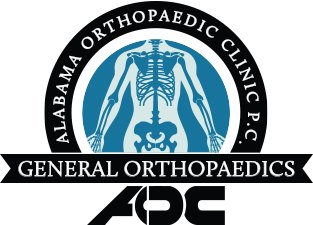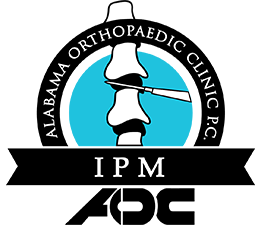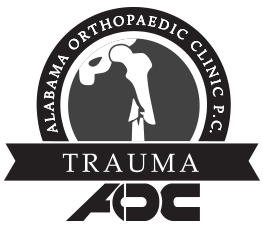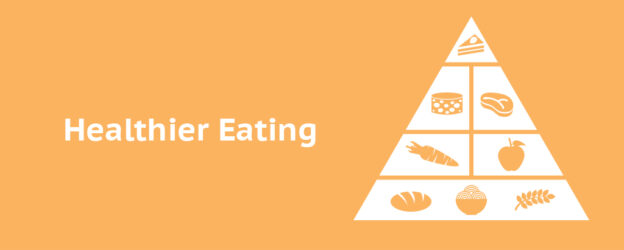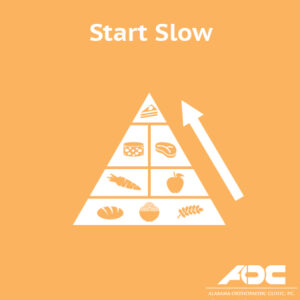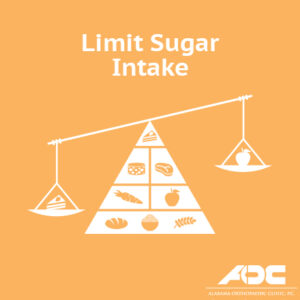
It seems like people are dieting more than ever these days. What many of them do not realize is eating healthy doesn’t mean sticking to strict dietary limitations or depriving themselves of the foods they love. Eating healthy means eating a well balanced diet that can provide your body with the proper nutrition. With so many fad diets out there, it can be difficult to determine what a healthy diet consists of, that’s where we come in. Here are 5 simple changes you can make on your journey to eating healthier:
1. Start Slow:
Eating healthy doesn’t happen overnight. If you change your diet all at once, it can lead to cheating or giving up on your new eating plan. Look at changing your eating habits as a gradual process, after a while, you will have developed better eating habits. It is important to remember that you don’t have to completely eliminate the foods you enjoy; the goal is to gradually become healthier.
2. Everything in Moderation:
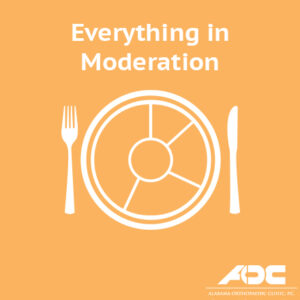
Stop over concerning yourself with counting calories and measuring portion sizes. Think of eating healthier in terms of moderation. What do we mean by moderation? Moderation simply means eating as much food as your body needs. The goal of moderation is to think in smaller portions, when you’re home, try using smaller plates to help you eat less. If you find at the end of meals you’re still hungry, try adding more leafy greens and fruits. It’s important to remember, after a meal, you should feel full not stuffed.
3. Pile on the Fruits and Veggies:
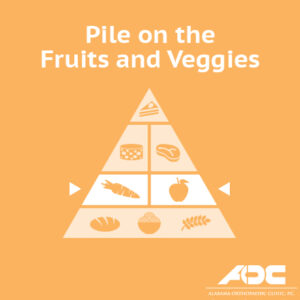
The foundation of a healthy diet is fruits and vegetables. They are nutrient dense and naturally low in calories, which means they contain vitamins, minerals and antioxidants our bodies need. Unfortunately, people don’t eat the daily-recommended intake of fruits and vegetables (5-servings). You should try to eat fruits and vegetables with every meal. Try adding berries to your breakfast, snacking on vegetables at work, and swapping sweet deserts for fresh fruits.
4. Switch to whole grain:
Switching to 100% whole grain foods can improve your energy levels. Whole grains are found to be rich in phytochemicals, which can help reduce the risk of certain types of heart disease, cancer and diabetes. Add whole wheat, millet, quinoa and barley to your diet and avoid refined foods such as breads, pastas and cereals that aren’t made with whole grains. An important thing to note is to know the difference between good and bad carbohydrates:
- Good carbs include whole grains, beans, fruits and vegetables.
- Bad carbs include white flour, refined sugar, and white rice that have all been stripped of their natural bran, fiber, and nutrients
5. Limit Sugar intake:
Many adults are not aware of the amount of sugar they take in on a daily basis. Sugar produces energy ups and downs that can lead to weight and health problems. The solution to this problem is simple, cut back on the desserts and sodas you consume. When you’re in the grocery store be mindful of hidden sugars in pasta sauces, canned soup and breads. Eat more naturally sweet foods to curb your sweet tooth.
Remember eating healthy means you should eat a well balanced diet. Now you can feel confident that getting healthier doesn’t have to be such a battle.
Like us on Facebook
Follow us on Twitter

















